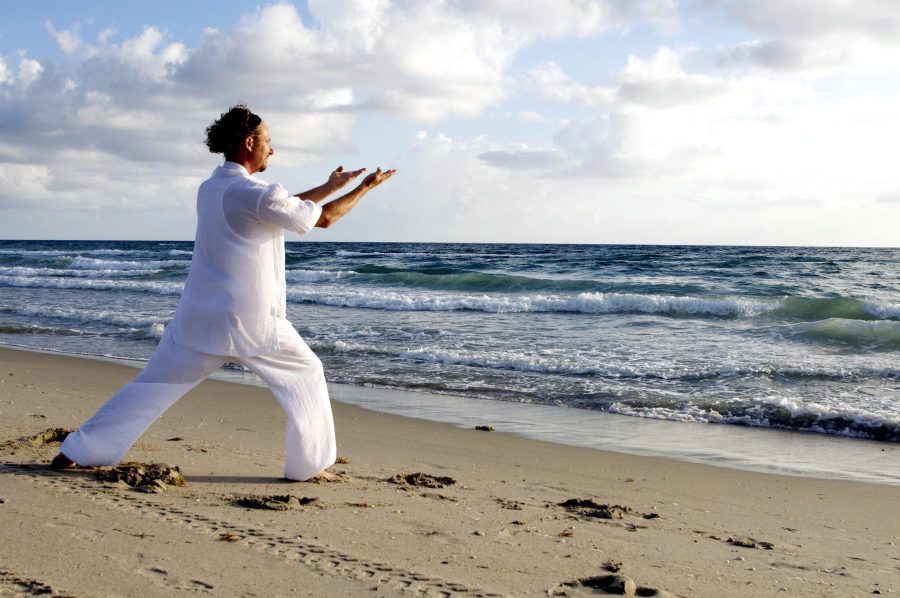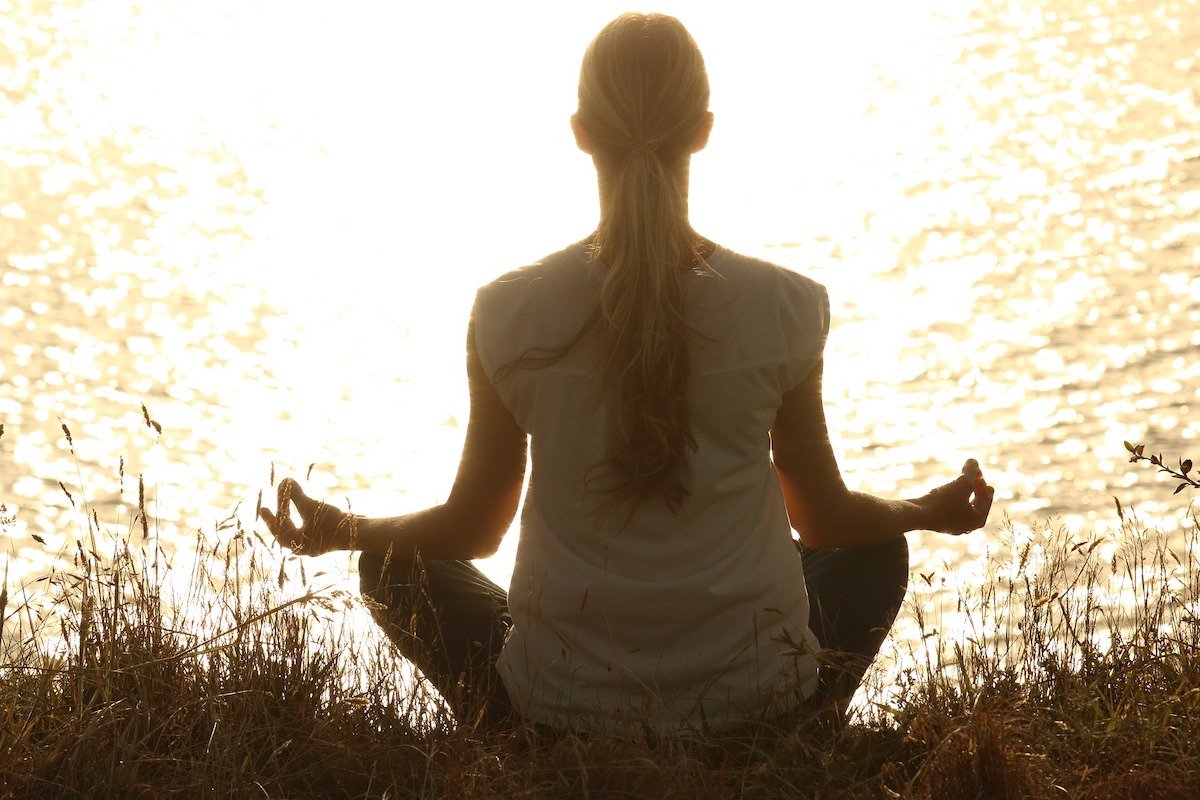Learn / Holistic Therapies in Drug and Alcohol Rehab
Holistic Therapies in Drug and Alcohol Rehab


August 6th, 2018| Clinically Reviewed by
Key Points
- Holistic therapies address your entire being, supporting recovery in and after rehab.
- A growing body of clinical research points to their effectiveness in certain areas.
- These include higher program completion rates, treating trauma, and preventing relapse
The use of holistic therapies in rehab is a highly debated topic. While some experts claim that alternative therapies are the missing piece of effective treatment, others say they lack scientific backing. Still, as modern addiction treatment progresses, more rehabs offer holistic therapy.
Here, we’ll take a look at what holistic therapy options are available, how they work and the research that speaks to their effectiveness in treating addiction.
What Are Holistic Therapies?
Holistic (also known as alternative, complementary or unconventional) therapies are designed to treat a person as a whole—body, mind and spirit. In rehabs, holistic therapies help address issues that both lead to and result from an addiction. Rather than targeting a specific issue, they’re designed to address your overall mental, physical and spiritual wellness.
Alternative treatments use mindfulness, spirituality and energy-related work to boost your health and well-being. Supporters of this approach see addiction as a symptom of broader unwellness. They also point out it’s equally important for the negative emotional and physical side effects of addiction to be treated, in addition to the addiction itself. Certain holistic therapies are commonly used in addiction treatment:
- Meditation
- Yoga, Tai Chi, Qi Gong, dance and other types of mindful movement
- Acupuncture and acupressure
- Massage
- Reiki, crystals and other types of energy work
- Herbal, Chinese or ayurvedic medicines
- Homeopathy
- Nutritional therapy
These therapies are designed to treat the underlying causes of addiction and promote more meaningful and longer-lasting healing. They also differ from conventional treatment in that they’re based on a more spiritual understanding of addiction.

Do Alternative Treatments Work for Addiction?
Measuring the effectiveness of addiction treatment in general is no easy task. This is even truer of holistic therapies, for a few reasons:
- Holistic treatments are almost always used in combination with conventional methods like cognitive behavioral therapy (CBT) and medication. Alternative therapies enhance and support these traditional therapies, which makes it harder to measure the success of holistic methods alone.
- Holistic therapies include a wide range of practices. The term “holistic therapies” covers a broad scope, so blanket statements about their effectiveness aren’t entirely accurate.
- Each individual responds differently to different therapies. What works for you might not work for someone else, and vice versa.
The question, “Do holistic therapies work?” is, definitively speaking, unanswerable. But addiction experts do have some evidence of their effectiveness through clinical research.
What We Know About Alternative Therapy in Rehab
Below are some facts about the use of holistic treatments in rehab along with corresponding research for each:
Holistic Therapies Treat More Than Just Addiction
Unconventional treatments attempt to treat your well-being as an interconnected whole,1 rather than honing in on one aspect of your physical or mental health. Holistic measures address other common concerns:
- Physical symptoms brought on by the addiction and/or withdrawal
- Emotional imbalances at the root of your addiction
- Nutritional deficiencies that create chemical imbalances in the brain
- A lack of spiritual grounding, which can contribute to feelings of loneliness and meaninglessness
These are just some of the underlying issues that may be indirectly related to (but play a significant role in) your addiction.
Wellness Therapies in Rehab Increase Chances of Program Completion
Treatment centers that use holistic measures have better program-completion rates.2 A study by the academic journal Psychiatry Services found that better services in a rehab center and the client’s satisfaction levels were positively correlated to completion of the program. In other words, your comfort level in rehab is important when it comes to completing treatment. And of course, if you complete your treatment program, your likelihood of maintaining sobriety is higher.
Holistic Approaches Treat Trauma Connected With Addiction
The link between trauma and addiction has been well established. Whether your addiction brought trauma into your life or traumatic life experiences led you to addiction, the majority of addicts identify as having some form of trauma. Experts agree that healing trauma is an essential component of recovery. The impact of holistic therapies on trauma3 is quite definitive—if you struggle with trauma and are seeking help for an addiction, holistic treatment options could improve your chances of a lasting recovery.
Complementary Treatments Decrease Chances of Relapse
Once you’ve completed treatment, holistic therapies can help you prevent relapse. Specifically, one study found that mindfulness-based therapies successfully prevent relapse.4 Clinicians found that through meditation, recovering addicts were better able to identify potentially triggering scenarios and remain calm in stressful situations, which may have otherwise caused them to relapse. Receiving alternative treatments while in rehab can provide you with the necessary skills for a lasting recovery.
Holistic Treatments Combat the Stigma of Addiction
One of the greatest obstacles in both seeking treatment for addiction and maintaining recovery is stigma. Stigma often prevents people with addictions from seeking help and adds to the difficulty of staying sober. However, alternative treatments help people in recovery manage stigma more effectively.5 Creating feelings of inner peace and harmony better equips someone to handle the stigma that can come with addiction.
Women Respond Better to Alternative Therapy in Rehab
Studies show that alternative therapies are more effective in treating addiction in women6 than men. This trend may be partially attributed to the socialization of women to be more open to alternative approaches. Whatever the reason, if you’re a woman seeking treatment, it could benefit you to look for a rehab that gives you the option of holistic therapies to complement your core program.

Benefits of Holistic Therapy
Although holistic therapy for addiction remains a debated issue among researchers and clinicians, many agree to the following benefits:
It’s natural. Alternative therapies use methods that are natural and don’t involve prescription drugs. While the use of medication can be a good treatment tool, it’s not necessary in all cases and if you prefer to avoid it, holistic measures may be right for you.
It restores your body’s equilibrium. Addiction wreaks havoc on your body’s inner balance. Oftentimes, addiction comes with other harmful habits, such as poor nutrition or sleeping. Holistic therapies can address these other imbalances, leading to overall improved health.
It develops lifelong healthy habits. Meditation and yoga are two examples of healthy practices that you may wish to continue after treatment. These go a long way in helping maintain your wellness in recovery—and your sobriety, as a result.
It treats the body, mind and spirit. Holistic methods treat the whole person by dealing with wellness concerns on multiple levels. By expanding treatment to various aspects of self, holistic therapies encourage a more complete sense of well-being.
Choosing a treatment center that offers holistic options gives you access to these extensive benefits, which you can take with you well beyond your time in rehab.
Wellness Programming at Luxury Rehabs
The decision to seek treatment isn’t an easy one to make. But luxury rehabs try to ensure your treatment journey is as comfortable and comprehensive as possible. And the best treatment centers don’t depend solely on holistic therapies; rather, they use alternative methods to complement evidence-based treatment.
With holistic therapies, you’re more likely to not only find peace in your experience, but also remain in the program when the process gets tough. While you do the hard work of getting sober and sorting through a painful past, alternative treatments make you more receptive to conventional therapy and uplift your overall state.
Compare luxury rehabs offering holistic therapy with key information listed in one place, including price, insurance accepted, and conditions treated.
Frequently Asked Questions About Holistic Therapies in Rehab
Are holistic therapies effective?
Clinical research suggests holistic therapies positively impact recovery:
• They treat underlying trauma related to addiction.
• Rehabs with holistic therapies often have higher completion rates.
• Mindfulness therapies can prevent relapse.
Can holistic therapies treat addiction?
Yes. Many rehabs now use holistic treatments alongside conventional therapies. Holistic therapies can address aspects of addiction that talk therapy doesn’t, and make your treatment experience more enjoyable.
What types of holistic therapy are used to treat addiction?
While a wide range of practices fall under the term “holistic,” certain therapies are more commonly seen in rehab:
• Meditation
• Yoga
• Massage
• Nutritional therapy
-
Long A. F. (2009). The potential of complementary and alternative medicine in promoting well-being and critical health literacy: a prospective, observational study of shiatsu. BMC complementary and alternative medicine, 9, 19. https://www.ncbi.nlm.nih.gov/pmc/articles/PMC2706798/
-
Hser, Yih-Ing, et al. “Relationship Between Drug Treatment Services, Retention, and Outcomes.” Psychiatric Services, vol. 55, no. 7, July 2004, pp. 767–74. https://ps.psychiatryonline.org/doi/10.1176/appi.ps.55.7.767
-
Wahbeh, H., Senders, A., Neuendorf, R., & Cayton, J. (2014). Complementary and Alternative Medicine for Posttraumatic Stress Disorder Symptoms: A Systematic Review. Journal of evidence-based complementary & alternative medicine, 19(3), 161–175. https://www.ncbi.nlm.nih.gov/pmc/articles/PMC4177524/
-
Ruth A. Baer, editor. Mindfulness-Based Treatment Approaches . 2nd ed., Elsevier, 2014, https://www.sciencedirect.com/book/9780124160316/mindfulness-based-treatment-approaches
-
Kissman, K., & Maurer, L. (2002). East meets West: Therapeutic aspects of spirituality in health, mental health and addiction recovery. International Social Work, 45(1), 35–43. https://journals.sagepub.com/doi/abs/10.1177/0020872802045001315
-
Polak, K., Haug, N. A., Drachenberg, H. E., & Svikis, D. S. (2015). Gender Considerations in Addiction: Implications for Treatment. Current treatment options in psychiatry, 2(3), 326–338. https://www.ncbi.nlm.nih.gov/pmc/articles/PMC4578628/
Return to Resource Library
Our Promise
How Is RehabPath Different?
We believe everyone deserves access to accurate, unbiased information about mental health and addiction. That’s why we have a comprehensive set of treatment providers and don't charge for inclusion. Any center that meets our criteria can list for free. We do not and have never accepted fees for referring someone to a particular center. Providers who advertise with us must be verified by our Research Team and we clearly mark their status as advertisers.








